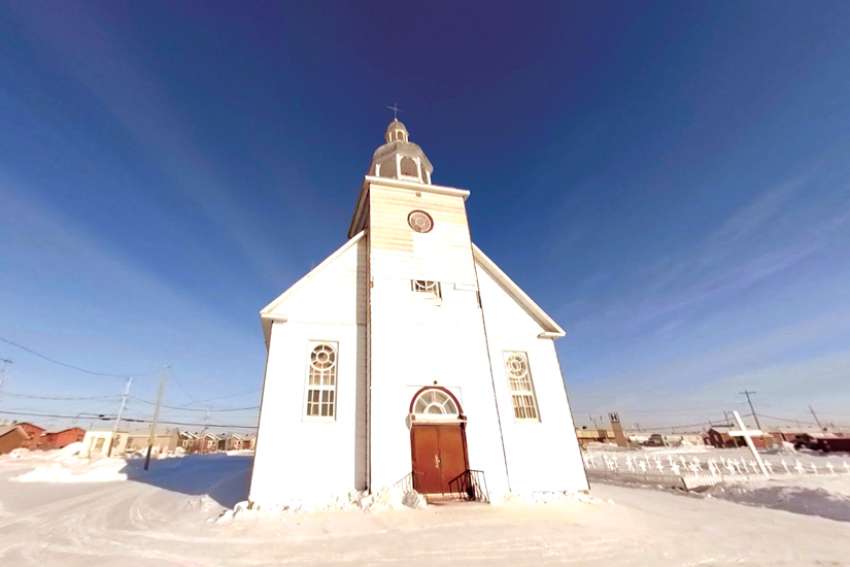Several engineering reports have confirmed what had been speculated for some time — St. Francis Xavier Church is unsafe to pray in.
A decision was made to close the church in northern Ontario in mid-October. Bishop Robert Bourgon has to decide if they should rebuild it or tear it down.
That news was followed by the death Oct. 29 of Fr. Rodrigue Vézina, who had served in the Catholic church for 43 years before retiring in 2014.
“His death was a hard pill to swallow and we all knew it was coming sooner or later,” said Bourgon, bishop of Hearst-Moosonee. “Still, people have a great attachment to him.”
Fr. Vézina, who died at Richelieu, Que., served the diocese of Moosonee for 55 years and his contributions went beyond the church. Vézina Secondary School in Attawapiskat opened its doors in the early 1990s.
“He was a major contributor to the spirituality of the faithful not only in Attawapiskat, but also in Fort Albany,” said Bourgon. “Unfortunately, he started to get dementia and Alzheimer’s and could no longer function well.”
As for the church — a wooden structure built about 100 years ago — Bourgon said two engineer reports indicated the structure is rotting and the foundation is not holding the building up properly, creating a risk that it could collapse. A second layer of flooring was placed onto the original floors that have sunk.
There are also health concerns to worry about.
“When the building was built, there was no sewer system,” said Bourgon. “What they did is build a holding tank of a cesspool under the building and that has never been remedied. The sewage from the building goes into this cesspool under the building and it’s creating, as you can imagine, all sorts of health issues that must be dealt with.”
While the church itself is closed, services continue. A portable classroom beside the church acts as a parish hall while larger ceremonies, such as funerals and weddings, are held inside the community centre. The resident priest was given temporary accommodations by the First Nations’ band.
“There are those that are not pleased and hurt the fact that the church was closing because there’s a lot of emotional attachment to the building, which is understandable, but unfortunately, as it stands, we can’t use the building because it’s unsafe,” said Bourgon.
“For them, the church, the presence of the church and the priest, are central to the community. The band has come on board to look at this as a whole community activity and something that needs to be preserved for the good of the community.”
However, Bourgon said, the closure of the church does not match the sorrow in the community over Fr. Vézina’s death.
“He was very good to them,” said Bourgon. “His Cree was as good as theirs, and he spent very little time outside of the community. He loved being in the north.”
Bourgon said the church is being emptied of all items they can save. Before he decides on the next steps, he’s waiting for another study to determine whether or not repairing the church is a viable option.
“The community is very supportive, they’re very good as far as looking at the situation and trying to find alternatives and what we can do best. The elders have and are continuing to work together with myself and the band to make sure we have a Church presence there. There is no question that this is necessary for the emotional and spiritual well-being of the people in the community.”


